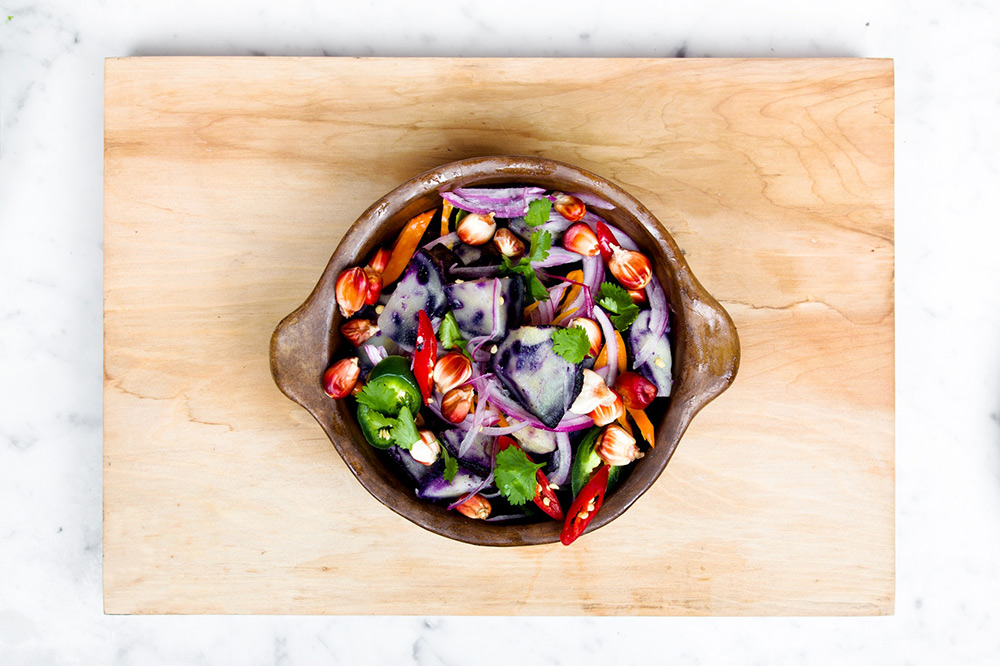So we know you’re short on time and often down on energy. But the good news is making healthier choices for you and for the environment doesn’t mean overhauling your life! A big part of choosing a better future is adding small stuff you can fit in daily – have a think about what some of them could be for you, because the payoff for you, your family, your relationships, wellbeing and the environment can actually be really big!
- Get into the garden
Growing your own fruit and veges might seem hard compared to a quick trip to the shops, but it means you know what’s gone into the growing process – and that means better nutrition for you, your flatties, the kids, whoever’s at your place. It’s great to know that you don’t need a big outdoor space – you can start growing produce in a little apartment in the city where there might only be a balcony or a few containers on the kitchen bench or window sill. Plus if you grow organic fruit and veg, you’re avoiding chemical sprays and fertilisers so you’re helping create healthier soil and waterways when there is runoff.
Gardening can also be give us a lift because by spending time outdoors in nature we can boost our mental clarity and memory and lower our stress levels. It also means we’re getting a bit of exercise into our day and getting that much needed vitamin C, which helps keep bones and teeth strong and might even help strengthen our immune system.
Plus the environment gets a boost: planting takes CO2 out of the atmosphere so makes our carbon footprint that much smaller.
- Add a compost
There’s nothing quite like putting those food scraps to use and getting some top notch fertiliser for your garden. A compost is really easy to set up inside or out, and you can chuck everything in there from produce scraps to coffee grounds, bread crusts and leaves shed by house plants. That equals less waste in our landfills.
- Boost your nutrition and cut food waste
By the time you’ve sliced and diced your fruit and veg for a salad or a stir fry, stuff like stalks, stems, peels and seeds are often left on the chopping board. But these be be the best for us. Try putting vege cuttings in a soup or stock and freezing for a rainy day. Saving leftovers is also a healthier choice and might just stop you ordering an unhealthy takeaway on an evening when you’d rather stay home than go out. Another option for cutting food waste is to plan ahead – try making a list of all the foods to cover at least weekday lunches and dinners.
- Try self-care
With busy schedules it’s often hard to take care of our own wellbeing, but making yourself a priority is really important. Otherwise we might be left feeling tired and unfocused and unable to switch off racing thoughts. Consider scheduling dedicated times for doing the things you really enjoy and spending time with those close to you. Part of self care is being present in each moment rather than multi-tasking, learning when to say no and to accept help when it’s needed. It could be as simple as calling a friend for a five minute chat, making time for a walk around the block during your work day, or planning a relaxing activity to look forward to.
- Exercise
By exercise, we don’t mean an intense class at the gym (of course, it’s fine if this is your thing), But small actions can be built into your daily routine for a bit of extra wellness. There’s often the chance for a walk where we might otherwise choose to hop in the car. If there’s a green space near you, visit it as often as possible. Take the stairs instead of the lift, or take a comfortable walk. And if you want to start an exercise routine, it doesn’t have to be too time consuming. Many workouts can take as little as five or 10 minutes and can make use of things around the home.
Tips for action:
- Be proactive about healthy living through diet and exercise
- Do your homework about where your food comes from so you know it’s healthier and ethically sourced, or think about growing your own
- Use technology like smartwatches to tell you more about your health and how you could improve it
- Make small changes to your daily routine to get a bit more exercise and boost your nutrition.
Further resources
Visit the ecostore blog for more inspiration and ideas:
Eating healthier to save money and help the environment
With the rise of organic, vegan, gluten free, dairy free and refined sugar free options it seems to eat healthy you have to pay a premium. But by keeping it simple you can make some healthy choices that don’t cost too much!
Easing into mindful eating
Eating mindfully helps us to tune in more closely to what our bodies are telling us about hunger and satisfaction and research suggests that paying more attention to how we eat supports a more positive relationship with food, allowing time for us to recognise the difference between physical and emotional hunger, too.
How food labels help you make healthier choices
Descriptions and claims on packaging can be misleading, so it’s a good idea to check the ingredient list and nutrition panel to verify any claims.




